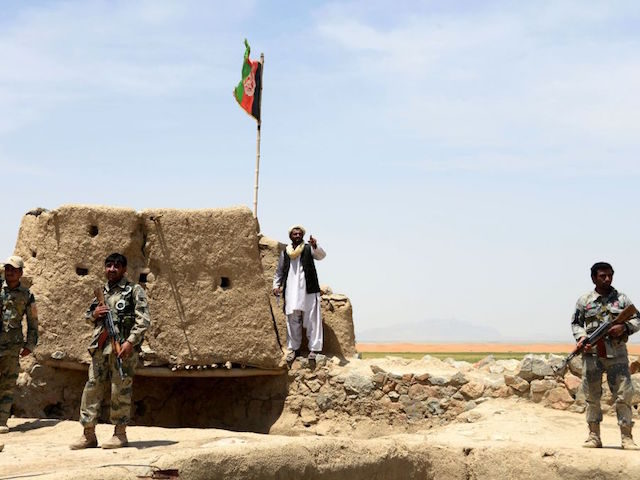Pakistan has rebuked a declaration by the BRICS nations, supported the Muslim-majority country’s ally China, that denounces Islamabad-affiliated terrorist groups as a threat, bringing the alliance of developing countries closer in line with positions of the United States and its allies.
“We reject the declaration [adopted] at the BRICS Summit,” declared Pakistani Minister Khurram Dastgir on Tuesday during a meeting of a Pakistani National Assembly panel on defense, in response to the 43-page declaration issued by BRICS (Brazil, Russia, India, China, South Africa) considered a rival to the G20, reports the Press Trust of India (PTI).
“Pakistan has taken action against all groups on its soil, and only the remnants of some are left,” the Minister Dastgir later told Geo News.
Of the BRICS members, India and China are the only ones that border terrorism-linked Pakistan.
Although Beijing and Islamabad consider their fellow nuclear-armed country India to be their regional rival, China and India have signaled concern about Pakistani-based jihadists, a position that is consistent with recent remarks from U.S. President Donald Trump as he announced his plan to end the 16-year-old war, officially dubbed the South Asia Strategy.
The BRICS “Xiamen Declaration” noted:
We strongly condemn terrorist attacks resulting in death to innocent Afghan nationals. … We, in this regard, express concern on the security situation in the region and violence caused by the [Afghan] Taliban, [Islamic State/ISIS] ISIL/DAISH, Al-Qaida and its affiliates including Eastern Turkistan Islamic Movement, Islamic Movement of Uzbekistan, the Haqqani network, Lashkar-e-Taiba, Jaish-e-Mohammed, [Tehrik-i-Taliban Pakistan] TTP and Hizb ut-Tahrir.
BRICS did not eplicitly identify Pakistan by name, but Islamabad’s links to certain jihadi groups are no secret to the international community, particularly India, China, and the United Nations.
According to the U.S. military, the largest concentration of terrorist groups in the world operate in the Afghanistan-Pakistan region.
The Pentagon has long accused Pakistan of harboring many of the groups highlighted in the BRICS documents, including the terrorists who operate in Afghanistan, which also shares a direct border with China.
China does not border mainland Pakistan, but it does share an international boundary with the portion of the disputed Muslim-majority region of Kashmir controlled by Islamabad.
Late last year, the U.S.-China Economic and Security Review Commission in a report to Congress hinted that the “more frequent and high profile” Islamic terrorist attacks against China in recent years—stemming from neighboring Pakistan and to a lesser extent Afghanistan—has prompted Beijing to at least rethink its assistance to Islamabad.
China is Pakistan’s top weapons provider and it also provides significant economic assistance to the Islamabad.
The largest Chinese province Xinjiang is home to the predominantly Muslim Uighur minority, many of whom have joined terrorist organizations that have threatened China.
BRICS adopted the declaration at its annual summit in Beijing, which is expected to conclude on September 5.
To the apparent surprise of Islamabad, China came out in support of the BRICS declaration slamming Pakistan-linked terrorist groups.
Late last year, the U.S.-China Economic and Security Review Commission in a report to Congress hinted that the “more frequent and high profile” terrorist attacks against China in recent years—stemming from Pakistan and to a lesser extent Afghanistan—have prompted Beijing to reconsider its assistance to Islamabad.
Various countries, including the United States and China, fear that Pakistan’s nuclear arsenal may end up in the hands of jihadist organizations.
The Muslim Uighur minority, which primarily resides in the largest province in China where human rights groups say Beijing keeps them oppressed, have joined Islamic extremist groups like al-Qaeda and the Islamic State (ISIS/ISIL) that have threatened to attack China.
The communist country is very secretive about the number of Islamic terrorist attacks within its borders. Some Chinese nationals have lost their lives inside Pakistan at the hands of Islamic terrorists.
China does not share a border with mainland Pakistan, but it does sit next to the Islamabad-controlled portion of the disputed Muslim-majority Himalayan region of Kashmir, also home to various terrorist groups linked to Pakistan.
New Delhi, Islamabad, and to a lesser extent Beijing all have competing claims to Kashmir where al-Qaeda and ISIS are reportedly seeking to intensify their operations.
China does share a direct border with war-ravaged Afghanistan where it is believed to be working towards peace with the Afghan Taliban.
BRICS also expressed concern about Afghanistan in its declaration, saying, “There is a need for immediate cessation of violence. … To promote peace and stability, to the fight against terrorism and drug-threat, and to the national reconstruction efforts by Afghanistan.”

COMMENTS
Please let us know if you're having issues with commenting.